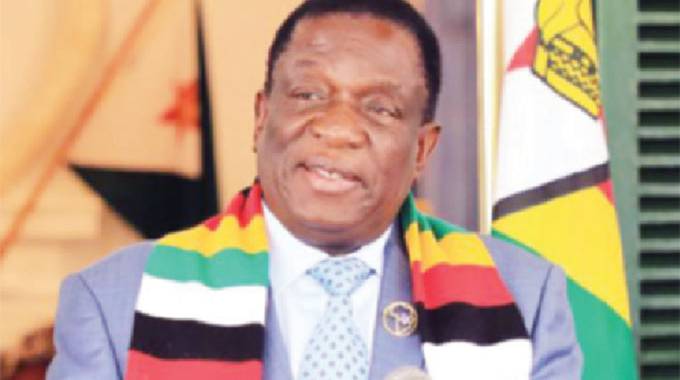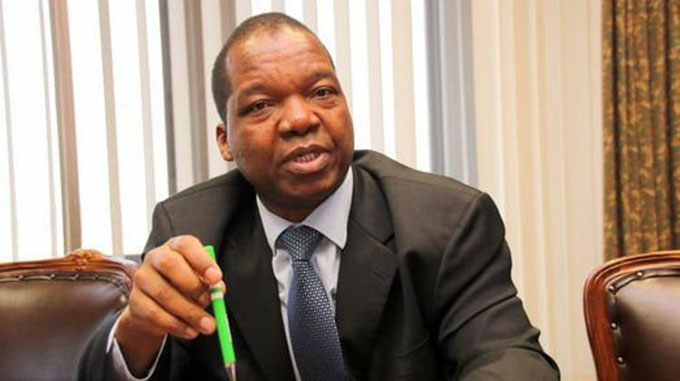Brexit: Opportunity for Zim, Britain to close ranks

Namatai Ticharwa
Correspondent
The political and economic ties of Zimbabwe and Britain date back to the colonial era. The relationship got even better during the Lancaster House Conference and for about two decades after independence.
The two countries relations took a nosedive after former President Robert Mugabe embarked on the land reform programme in the early 2000s which was a misnomer to British political and economic interests.
The relationship became even bitter after Mugabe withdrew from the Commonwealth in 2003. Since then, Mugabe never attempted to create a meaningful relation with Britain.
Rather, Mugabe started to look East especially to China. The policy has brought about a meaningful change to Zimbabwe up to date. However, recently the Chinese five-year plan has shown that China is now more interested in looking inwards with minimal support for other countries.
However, with the coming in of the New Dispensation or Second Republic under President Mnangagwa, Zimbabwe has had dialogues with Britain as a way of trying to create a proper political and diplomatic engagement.
What is Brexit
Brexit is a portmanteau of United Kingdom’s exit or withdrawal from the European Union. Brexit started in 2016 after a nationwide referendum voted in favour of leaving the EU because they believed it was abrogating the state’s sovereignty. It took about four years for Britain to finally withdraw from the European Union with a deal, the Prime Minister, Boris Johnson applauded saying, “the deal has finally brought back freedom in our hands”.
Zimbabwe on Brexit
Government has not kept a blind eye on Brexit and it hopes to become one of the potential relief providers for Britain in the post-Brexit period. In early January 2018, President Mnangagwa publicly announced that, “what the United Kingdom lost in Brexit they can come and recover from Zimbabwe”.
Thus, it is clear that Zimbabwe is ready to open up its hands for Britain and re-engage with it in order to avoid the economic quagmire that might happen as a result of Brexit. Brexit simply means that some political and economic benefits that Britain used to enjoy in the EU are no longer viable, so it needs to find new alternatives through engagement and re-engagement with more international actors.

Prime Minister Johnson
Coincidentally, the Zimbabwean government recently launched, the National Development Strategy 1 (NDS1) which seeks also to build the nation’s image through engagement and re-engagement with the international community. Since Brexit is a loss for Britain in terms of trade and political relevance especially in Europe, it can use the willingness of Zimbabwe to re-engage to rebuild its image in the international community.
Britain has also shown its interest in re-engaging with Zimbabwe through admitting it in the Commonwealth and improving its bilateral relations with the Southern African country. In one of his interviews with an internationally acclaimed newspaper Times, Boris Johnson praised President Mnangagwa’s impressive efforts in reforming Zimbabwe and he also revealed his support for Zimbabwe to rejoin the Commonwealth.
Now that Britain has officially withdrawn from the EU and has the official deal on the table which has both positive and negative benefit to the country, it is high time that Britain fills the loopholes of the trade deal through looking to its unconditional friend Zimbabwe.
With Ireland pressuring to rejoin the EU as an independent country, Britain’s political power is dilapidating and pressure is mounting because of the new uncertainties that are coming especially after the official signing of the EU-UK post Brexit deal on December 31 last year.
Thus, in order for Britain to reorient its global position it needs to work on improving the commonwealth and to recreate its broken relations with other countries such as Zimbabwe.
It is also clear that Britain now needs more countries for it to independently export its finished products and also to deal for raw materials.
Hence, Zimbabwe can be a favourable destination for Britain since it also needs high quality products from the UK and also a country to fairly trade with its high quality minerals.
This relation will also be reciprocal in the sense that UK can also represent Zimbabwe in UN Security Council, International Financial Institutions and facilitating room for the country to re-join the Commonwealth. The UK can also help to reduce Zimbabwean trade deficit by increasing importation of Zimbabwean products. In turn, Zimbabwe will also cover up the lacuna that is being caused by the recently agreed trade deal between EU and Britain. Zimbabwe will also help Britain to at least regain some of its political power in Africa.
However, it is important to note that, Zimbabwe alone cannot help Britain to succeed in covering potential economic problems in the post-Brexit era but, at least it can be part of both short and long term recovery plan.
If both countries mend their relationship ties, it will save them from potential economic depression that is associated with Isolationism as happened in US during the late 1920s. Thus, the success of Brexit, brings hope for Zimbabwe to re-engage with Britain because of its need for new partners to avoid economic downturn in the post Brexit era.
Namatirai Ticharwa is a Master of Science in International Trade and Diplomacy student at the University of Zimbabwe. Feedback [email protected].







Comments